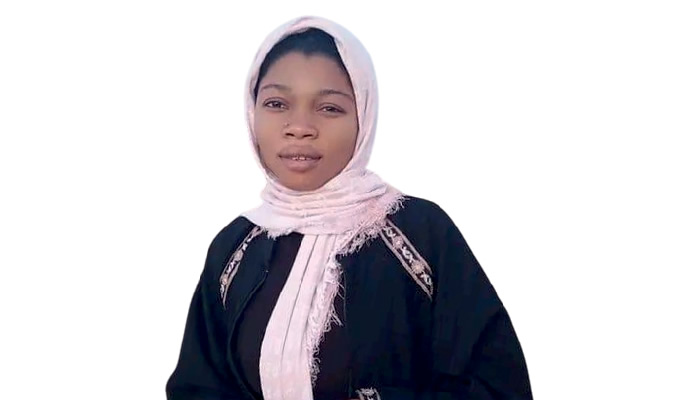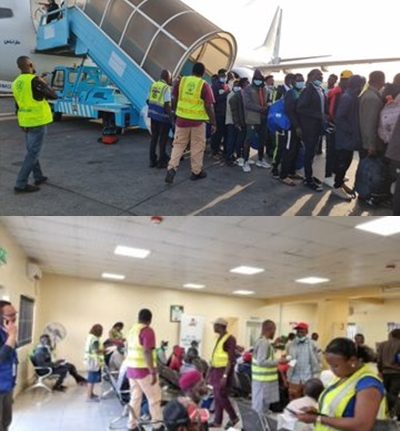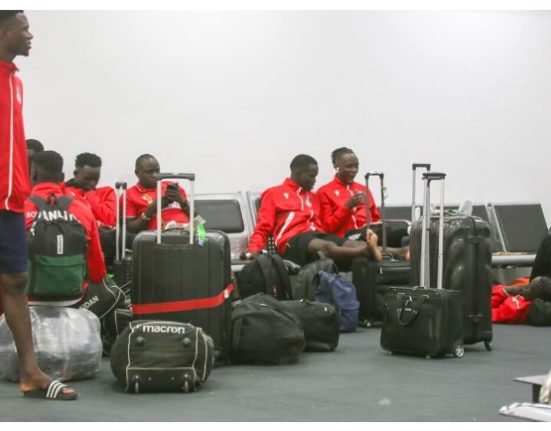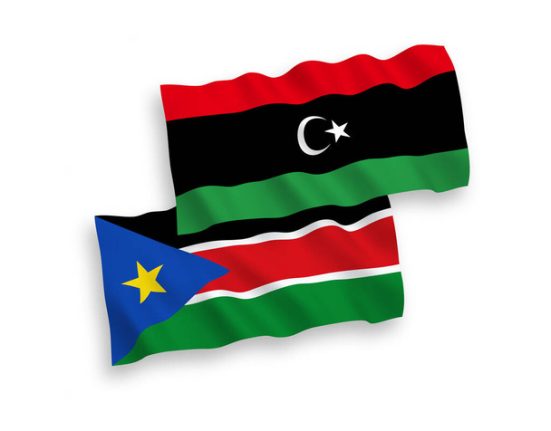A 32-year-old Nigerian widow, Titilopeyemi Olaniyi, has recounted her horrifying ordeal in Libya, describing how Nigerian migrants are being treated like animals in detention facilities, with some reportedly losing their sanity due to inhumane prison conditions.
Olaniyi, who hails from Ibadan, Oyo State, was among dozens of Nigerian women deported from Libya in January 2025. Her journey began in 2023 after being promised safe passage to Europe by a broker. However, she ended up in Libya where she spent over a year working under harsh conditions before being arrested and imprisoned for five months without committing any crime.
Speaking in an interview, the mother of two narrated how she embarked on the trip in a desperate attempt to support her children following the death of her husband in a tragic accident in 2020. “I just wanted to give my children a better life. After my husband died, I was left with nothing,” she said.
According to her, the two-week journey to Libya by road was traumatic, with many travellers either dying or suffering serious injuries. “We were packed in pickup trucks with barely enough space to sit. One man even fell off and died on the way. I cried for my children the whole time,” she recounted.
Upon arrival in Libya, Olaniyi was handed over to her trafficker, a woman named Bola, who compelled her to work as a maid in an Arab household without pay for a full year to settle her debt. Despite suffering illness and injury, her trafficker never offered support. “It was the Arab man I worked for who took me to the hospital,” she said.
After repaying her debt, she secured another job as a cleaner in a hospital, working grueling 12-hour shifts alone. However, her hope of building a new life was cut short when she was arrested arbitrarily during a police raid on her apartment complex. She said the police accused Nigerians of always causing problems and threw her in jail without any evidence or opportunity to defend herself.
In Libya’s notorious Sunaya Prison, where she spent five harrowing months, Olaniyi witnessed firsthand the degrading treatment of Nigerian inmates. “Once they know you’re Nigerian, you are treated like dirt,” she said. “We were fed half-cooked rice without salt or soup. Pregnant women died during labour. Some Nigerians even lost their minds due to poor food and lack of medical care.”
She claimed that Nigeria had the highest number of foreign inmates in the prison, with over 200 Nigerians detained compared to just over 20 from other nationalities. While other embassies regularly visited and supported their citizens in prison, Olaniyi accused the Nigerian embassy in Libya of doing little to help.
“They don’t bring food, toiletries, or even check on us like other embassies do. They just ask who wants to be deported and then disappear. Even after collecting names for deportation, they usually deport only a fraction of those registered,” she said.
Olaniyi finally signed up for deportation after learning that her mother, who was caring for her children, had suffered a stroke. She was arrested in July 2024 and deported in late January 2025. Upon her return to Nigeria, she suffered severe malnutrition and illness. “When my mother saw me, she burst into tears,” she said.
Now back in Nigeria and currently staying with her uncle in Edo State, Olaniyi says she has received no help from the government or any humanitarian organization. “When we landed, the authorities took our statements and promised help. Till now, nobody has reached out,” she said.
She continues to rely on her family for survival, including payment of her children’s school fees. Despite pressure to remarry, Olaniyi insists that financial stability is her priority. “There’s no point in remarrying when I can’t even afford to care for my children. I just want to start my business again and give them a decent life,” she said.
Olaniyi is calling on the Nigerian government to do more to support widows, single mothers, and vulnerable citizens, warning that many are still falling victim to deceptive brokers due to poverty and lack of opportunities.
“If Nigeria provided good jobs and support for widows, many of us wouldn’t risk our lives. In Libya, the government supports its citizens, pays widows and even funds childcare. But here, we’re left to suffer,” she lamented.
She warned young women and single mothers not to fall into the same trap. “Stay with your children. Work hard here. That road is not worth it. I wouldn’t wish my experience on anyone.”





